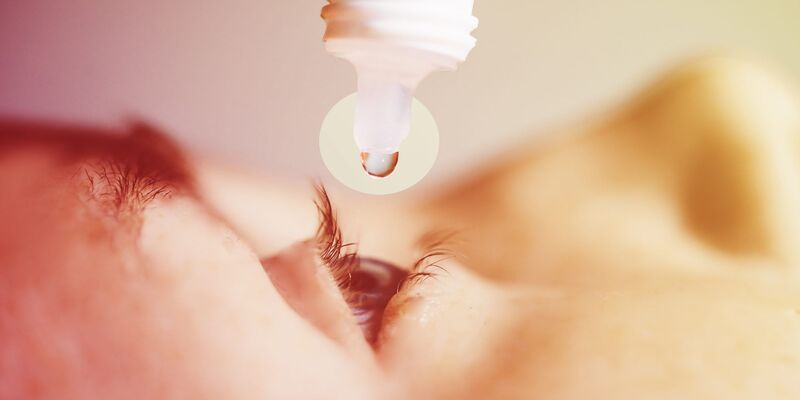Glaucoma refers to a group of eye illnesses that can cause harm to the optic nerve, that carries visual data from the brain to the eye. It's often linked to abnormally high intraocular pressure (intraocular pressure). If glaucoma is not treated, it might cause permanent blindness. It is normal practice to treat glaucoma using eye drops. These eye drops effectively reduce intraocular pressure by either reducing the production of fluid (aqueous humor) in the eye or increasing its outflow. Eye drops for glaucoma can be employed alone or in conjunction with other treatments for the disease.
Every Dose, Every Day, Can Help You Keep Your Eyesight.
You must strictly adhere to your ophthalmologist's instructions while administering glaucoma eye drops. That means always following the prescribed schedule. Your eyesight is at risk if you don't take this precaution. Make sure any other physicians you see know about any glaucoma medication you take. Glaucoma eye drops, like any other drug, may create unwanted side effects. If you feel sleepy after using glaucoma eye drops, don't go behind the wheel or handle heavy equipment. Your eye doctor may prescribe a combination of the following glaucoma eye drop medications.
Eyedrops
Eye drops prescribed by a doctor are frequently the first step in treating glaucoma. If fluid drains more efficiently from the eye, it may help reduce ocular pressure. Certain medications reduce the number of tears your eyes produce. The number of eye drops you get from your doctor depends on how low your eye pressure needs to be.
Some examples of eye drops available only via prescription are:
Medication That Slows Down The Heartbeat Is Called A Beta Blocker
These assist in relieving eye pressure by decreasing the fluid produced by the eyes. Timolol (Betimol, Istalol, Timoptic) and betaxolol are a few of them (Betoptic S). Breathing problems, sluggish heart rate, low blood pressure, impotence, and weariness are all possible adverse reactions. Depending on the severity of your disease, your doctor may recommend that you take medicine from this class once or twice daily.
Alpha-Adrenergic Agonists

These lessen the amount of fluid that normally circulates throughout the eye. Furthermore, they improve tear production and drainage. Apraclonidine (Iopidine) and brimonidine are two drugs (Alphagan P, Qoliana). A dry mouth, a fast or irregular heartbeat, high blood pressure, tiredness, red, itchy, or watery eyes, and a bloated face are all potential adverse reactions. This medication class is often given for twice-daily dosing, while once-daily or even three-times-daily dosing is possible in rare cases.
Carbonic Anhydrase Inhibitors
They lessen the number of tears you shed from taking these pills. Drugs like dorzolamide and brinzolamide are two examples (Azopt). A metallic aftertaste increased urine, and tingling in the limbs may all be adverse effects. This medication class is often given for twice-daily dosing, while once-daily or even three-times-daily dosing is possible in rare cases.
Rho Kinase Inhibitor
This medication reduces intraocular pressure by inhibiting rho kinase enzymes. Netarsudil, marketed under the brand name Rhopressa, is a once-daily option. Redness and irritation of the eyes may occur as a side effect.
Miotic Or Cholinergic Agents
They encourage more tear fluid to drain away from your eye. Pilocarpine is one such example (Isopto Carpine). Among the adverse effects are the discomfort mentioned earlier and pain in the eyes, constricted pupils, nearsightedness, and a general decrease in visual acuity. Most prescriptions for this class of drugs call for four daily dosings. These medications are seldom administered now because of the high risk of adverse effects and the need for regular administration.
What Are The Adverse Reactions?
The vast majority of patients will tolerate glaucoma medications. However, there is a remote possibility that you may grow:
- Pain, redness, and irritation in the eyes.
- Vision blurred
- Alterations in the color of your eyes or the skin surrounding your eyes
- Headaches
- Bad breath
Alterations In Your Vitality, Respiratory Rate, Or Heart Rate

There are various possible negative reactions, and they change based on the medication you take. Do not hesitate to see your physician if you experience any unwanted side effects. Your doctor may prescribe you a new or different dosage from the current one.
Conclusion
Use glaucoma eye drops as directed by your doctor. Use the drops exactly as directed on the label and during the appropriate times. Do not stop taking the drops suddenly or miss doses without your doctor's approval. The success of the therapy and the absence of any unwanted side effects may be monitored by scheduling regular eye examinations.




